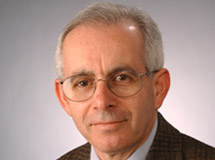NASCAR Internship Puts Jenna Mazza L’26 on the Right Track to Career in Sports Law
A lifelong NASCAR fan, Jenna Mazza L’26 has a photo of herself at age 4 standing with legendary driver Jimmie Johnson’s diecast car. So, imagine her elation when she had the opportunity to take a photograph with Johnson himself this…


 Amos Kiewe, professor and department chair of Communication and Rhetorical Studies and an expert in political rhetoric, answers a few questions on speeches at the just-concluded political conventions.
Amos Kiewe, professor and department chair of Communication and Rhetorical Studies and an expert in political rhetoric, answers a few questions on speeches at the just-concluded political conventions.